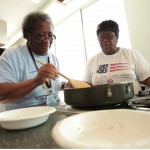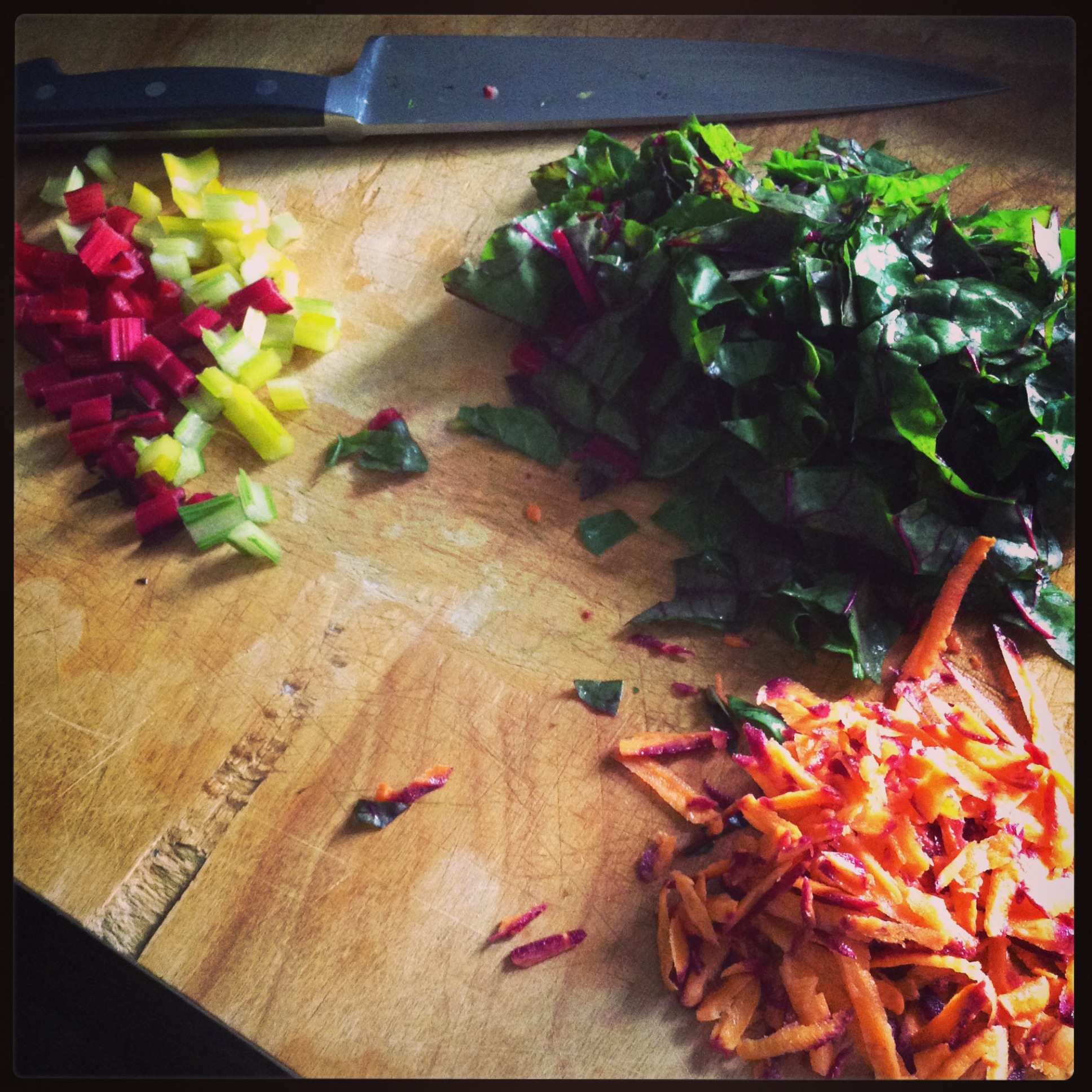Love Your New Hampshire Red as Yourself
by Rev. Trey Everett
I’m not a vegetarian. I eat turkey at Thanksgiving, grilled burgers on the fourth of July, baked ginger salmon, steak medium rare, and lots of awesome fire-breathing Kung Pow Chicken my wife stir-fries like she was born with a wok in one hand and numbing peppercorn in the other. I don’t have issues with farms or farmers, eating meat, or raising animals to feed people. But I do have issues when animals are bred and raised like they are being punished or even tortured for some unknown cosmic crime.
At some level the fact that I eat animals but also care about their welfare may seem out-of-balance. But I see this as part and parcel of the sacrificial world we are born into. The sun gives of itself for flowers and trees to grow, wood is sacrificed for fuel to cook and heat, and we pour our life energy into others so they may have life. I am reminded of Jesus’ teachings on dying to ourselves in order to really live, as well as his own sacrificial life Christians are so familiar with during this time of year. And yes, our friendly barnyard friends give of themselves so that we may live. I passionately care about these animals and how, before unknowingly giving their lives for my benefit, they are treated during their short time on this planet.
As caretakers of this planet, humans have a responsibility to, well, take care of things. And one of our caretaker jobs, I believe, is to make sure all beings are treated with compassion. Some might argue that animals are animals and therefore treating them “humanely” is an oxymoron. After all Jesus said to treat our neighbors – not our nanny goats – as ourselves. However, I find that argument a little silly especially in a country were most of our pets are overweight or obese and where 53 billion dollars was spent on pet products in 2013.
In other words if I were to treat a person’s beloved Fido or Tabby cat the way pigs or cows or chickens are treated on many industrial facilities there would be an outcry of how “inhumane” I was being. In truth, I would be prosecuted for my criminal acts. However, when other animals, animals we feed our friends and families, are treated with such cruelty we turn a blind eye. In some slaughter houses over 1,000 pigs are killed every hour. Because of this sheer number “many pigs are still alive when they are dumped into scalding-hot hair-removal tanks– they literally drown in scalding-hot water.”
Thich Nhat Hanh, a Vietnamese author, talks about how industrially-raised chickens are crowded into a space so tight that that they can’t even move. Artificial lighting makes them think a 24-hour day is much shorter so their life cycle is sped up and they can produce more eggs. Anger, fear, and agitation build so much that they just want to start pecking anything or anyone around. (And who wouldn’t?) But humans have come up with a clever plan to stop them from hurting each other: we cut off their beaks!
We are learning that emotions and memory are absorbed into our cells. That means when we eat these chickens, creatures who have lived lives of cruelty and anger and fear, we are actually ingesting these emotions into our very lives.
I’m not interested in being part of any system that supports this type of cruelty toward any being, whether it’s a golden retriever, dolphin, fellow human being, or a New Hampshire Red chicken.
I have had to make lifestyle changes in order to choose to eat this more compassionate way. For one, it’s not easy to find a restaurant that serves humanely-raised meat, so I don’t eat at many restaurants anymore. I have also cut back on the amount of meat I eat, simply because humanely raised meat is more expensive. Sometimes, when eating at someone’s home, my decision to only eat humanely-raised meat can make for an awkward moment. Who wants to risk offending your gracious host? Sometimes, I thankfully eat what is placed before me without asking questions.
All these “sacrifices” are actually minor compared to what I am standing up for, which is the compassionate care and treatment of all of God’s creation. One day maybe humans will realize that loving not just each other, but all of creation, as ourselves is a good and Godly goal.
———————
Photo by Rev. MargaretAnne Overstreet
Rev. Trey Everett is the Co-Director of the Minnesota Institute of Contemplation and Healing (MICAH). Trey has been involved in the study and practice of spirituality for over 20 years. He has instructed and directed others in spiritual formation as a contemplative retreat leader, youth minister, senior minister, and a Bible college instructor.
———————————-
Lenten Calendar for MARCH 27
Read up on food waste.
————————————
Sign up to receive the daily meditations by email, or like us on Facebook.
We need your stories!
We’re already looking ahead to the 40 Days for Food Justice Project for 2016 and we’re looking for more stories, experiences, prayers and resources about food justice and food injustice.
If you would like to contribute – or would like to recommend a contributor – please send us an email and let us know.
About:
In addition to being the founder and editor-in-chief of the “40 Days for Food Justice Project”, the Rev. MargaretAnne Overstreet is a mom, a Presbyterian pastor, and a certified Health Coach. She does ministry with and among the good people of Westminster Presbyterian Church in Belleville, Illinois, where she gets her hands dirty in the community garden and, every Sunday, preaches with bare feet. She treasures family time, relishes every opportunity to teach and write about food justice, and loves to play outside with her dogs. Find out more about her at www.AnInBetweenPlace.com















